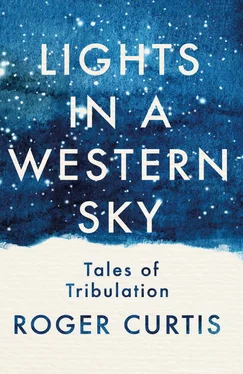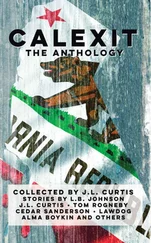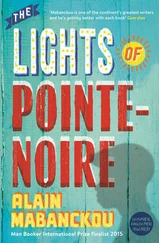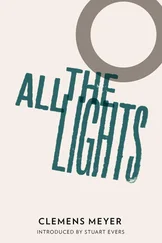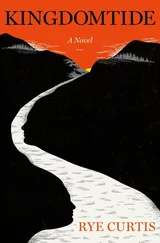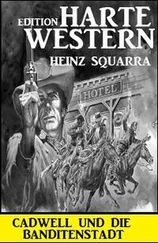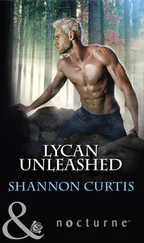An hour later he was still driving aimlessly. Then he realised that the petrol in his tank was a precious commodity that could not be wasted. Distance equated with motorway access, so he sped north, hitting the M11. Someone had once told him that he would never like East Anglia because the sort of cities he frequented did not exist there. So when the choice of the Midlands or Norwich presented itself he chose the latter. For mile after mile he saw only trees, and black spaces that were fields. Apprehensively, he was confronting the unknown. He stopped once for petrol, but the lights around him were just an oasis in a desert of darkness. Driving on, there were stars above, brighter than he had ever noticed before. Quietly, insidiously, tiredness gripped his body and stilled his mind. Sargon’s son behind the glass became no more than the soft movement of a shadow, the case lying on the seat beside him almost an irrelevance. His light-headedness encouraged him to drive on, around the outpost of the city that was Norwich, beyond the airport, eventually into deeper blackness. He negotiated tiny villages, faintly pocked with light and, linking them, narrow lanes across which bats and night owls flew. He came to a sign marked ‘to the beach’ and followed it into a car park in which stood an abandoned caravan and a cart bearing a load of waste under a tarpaulin. He drove to its furthest boundary, marked by a row of white posts, drawing up to them as far as he could go. He switched off the engine. Then he slumped over the wheel and slept.
Sargon sat behind an antique rosewood desk with his legs stretched out between the pillars. On the desk was an open and empty briefcase. The lamp that he had set up to examine its contents, of which there were just a few meagre banknotes, he now trained on Cranford’s face. Looking from behind, across the boy’s shoulder, Bentley observed Sargon’s impatiently mincing feet which, given their surroundings, resembled the maw of a predatory crab. Bentley, who had been amused by this often enough, wondered if Cranford had made the same association. But perhaps he had other thoughts on his mind right now. Bentley knew what those movements of the feet presaged; but Cranford was too new for that, and had not calculated the odds.
With a sudden thrust of his arm, Sargon swept the case forward. It crashed against Cranford’s knees and fell gaping to the floor. Bentley leaned forward and tapped the boy’s shoulder. His voice was neutral. ‘Pick it up, son, and put it back – open – on the desk.’ As Cranford obeyed Sargon rose from his seat, rounded the desk and stood beside him, placing his hand on the trembling boy’s shoulder. ‘Fill it,’ he said. Cranford squinted up at him, at first mystified, then slowly began to feel in his pockets. Into the bag he put his comb, his keys and his wallet. ‘That doesn’t fill it,’ Sargon said, at the same time delivering a vicious thrust to the side of Cranford’s head with his fist. Bentley leaned forward again. ‘He means everything – everything you possess – son,’ he said. As the case began to fill, Sargon returned to his seat behind the desk.
When Cranford had placed the last item – his underpants – in the case, Sargon withdrew from the desk a small package bound with pink ribbon, and handed it to him. He spoke over the boy’s head. ‘A fair exchange, wouldn’t you say, Philip?’ ‘Open it,’ Bentley said to Cranford, poking his shoulder.
Two minutes later Cranford stood before them, shivering, in a pair of blood red boxing shorts.
Sargon rose and looked out of the window at the ring below. ‘Heh,’ he said, ‘Connors must have read our thoughts. He’s already down there waiting for you.’ ‘You’ll find socks and boots in the ring,’ Bentley said. Sargon turned to Bentley. ‘Can we afford one more this year?’ he asked. Bentley shrugged. ‘It’s what we agreed with the fuzz,’ he replied.
Sargon looked searchingly into Cranford’s face. For several seconds the room and the people in it seemed frozen in time. Then, just for a moment, the chiselled features seemed to relax, transforming themselves into something that might have passed – at another time and in another place – for fatherly concern.
‘There’s a lock-up in Islington, green door, behind Brent’s place. I’m sorry, Mr Sargon, really sorry.’
‘Take him down, Philip,’ Sargon said, ‘but this time, use your judgement.’
When the noise had ceased Sargon looked at the clock. Twenty minutes had passed. The room, like the building, was now cold and silent. He sorted the papers on his desk and placed his pen on top of the pile. Then he went to the window. What he saw did not at first seem to please him, then he smiled to himself. ‘Philip, Philip,’ he muttered reprovingly under his breath.
With the dawn light the four white posts of the boxing-ring turned into the painted fence in front of Bentley’s car, the agitated figures outside it into the twisted trunks of young Norfolk pines planted between the car park and the sea. But something more significant, at that moment, had caught his eye and made him reach for the gun that he had hidden under the folded coat beside him. Parked alongside was a black Mondeo, just like Sargon’s. He opened his door and crept round the bonnet, close to the ground, covering the other car with his gun. But the car was empty. Moreover, it was not Sargon’s.
With lighter heart Bentley moved forward into the belt of trees, stepping carefully – as he had trained himself to do – to avoid leaving footprints on the ground. The sky was pink now, the beach beyond a cloth of gold edged with white lace. He stared and sniffed the salt air, and stood puzzled because the unfamiliar experience had made his thoughts wander too far.
He was not alone on the beach. Further along there was a figure near the water’s edge laying out a structure – surely an enormous kite – whose coloured and segmented surface rippled in the wind. He crept closer, safe behind the grassy dunes that fringed the sands. Slowly, confidently, the kite-surfer negotiated himself into the water. Bentley shivered at the thought of it and with his hand brushed back the wisps of his hair caught by a fresh gust of wind. Then, quite suddenly, the kite rose up, dragging the figure across the surface of the water, the feet describing a perfect and sparkling arc that reminded Bentley of the necklace that, with seconds ticking away, he had decided to retrieve from the last of the cabinets. He shivered again, but this time for a different reason. Then, as the wind dropped, the kite came down, as quickly and silently as it had risen.
When the kite went up for the second time, Bentley’s coat began flapping against his legs in a violent gust that drove the kite both upwards and towards him. The suspended figure was snatched high into the air, then fell back awkwardly onto the sand amid the spent folds of material. From behind the dune Bentley contemplated the crumpled form, clinically, dispassionately. Then he walked towards it.
It was not the first time Bentley had witnessed the contusing violence of death. But on such occasions, in his own world, there were seldom decisions to be made. Others, not he, would do what had to be done – to clear, to tidy, to hide, then to deny. He looked into the clear morning air, at the sky and the sea, and along the beach. There was no movement, except for the swell of the surf.
It was not enough. The residues of a lifetime of crime and bitterness could not be expunged this easily. There were no mechanisms for imparting sympathy or explanation to others, and it was too late to learn. He saw no other course, no means of grasping the line that was offered, or even of telling whether it was a lifeline or a snare.
Turning away, he began to retrace his path. Then he picked up a piece of driftwood from near the water’s edge. As he made his way back to the car he dragged it behind him, obliterating his footsteps in the sand. Looking back, he was pleased that the tide seemed to be coming in. He reached the car with quickening steps. Establishing that he was alone, he hurled the stick into the trees and scrambled into the car.
Читать дальше
